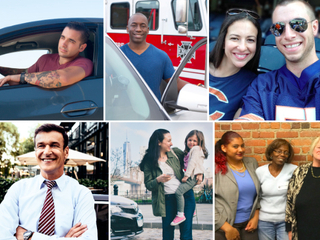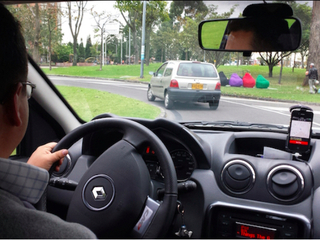
Uber/Lyft drivers must register as businesses in SF
And it's not just for ridesharing: rule applies to anyone making money in the sharing economy
Editor's Note: Our annual Vator Splash Spring 2016 conference is around the corner on May 12, 2016 at the historic Scottish Rite Center in Oakland. Speakers include Nigel Eccles (CEO & Co-founder, FanDuel), Andy Dunn (Founder & CEO, Bonobos), Mitch Kapor (Founder, Kapor Center for Social Impact); Founders of NextDoor, Handy, TubeMogul; Investors from Khosla Ventures, Javelin Venture Partners, Kapor Capital, Greylock, DFJ, IDG, IVP and more. Join us! REGISTER HERE.
SF Treasury: Are your drivers classified as employees or independent contractors? Because if they’re employees, they’re entitled to minimum wage and certain benefits.
Uber/Lyft: They’re 100% independent contractors. They just love the flexibility and new way of earning a living.
SF Treasury: Okay, cool. Just make sure each driver sends us a yearly payment of $91 for their business license.
That’s the latest news out of San Francisco, in a nutshell.

Any individual driving for Uber or Lyft in San Francisco—regardless of how much money they make—will now be required by the city to register for a business license. For those individuals (or should I say businesses?) bringing in anywhere from $0 to $100,000 per year, the license costs $91 per year.
“I take seriously my obligation to fairly implement San Francisco’s business registration requirements,” said Treasurer José Cisneros in a statement this morning.
Over the phone, a spokesperson for the Treasurer confirmed for me a few details about the news.
For one, it does not matter where you live. If you live in San Francisco and drive for Uber within the city, then you’re required to register for a license. If you live in Sacramento and commute to SF to drive for Uber, then you’re still required to register for a license.
Additionally, this isn’t just about Uber and Lyft. Any individual making money as an independent contractor in the sharing economy is now required by the San Francisco Treasurer to apply for a business license and pay the applicable fee.
That other highly successful sharing economy company—Airbnb—knows this well. Not only must Airbnb hosts obtain the same city business license as Uber and Lyft drivers, but they must also register and obtain a permit from the Office of Short Term Rental. The cost for that permit is $50 every two years. Of course, an arduous application process combined with ignorance of the law has contributed to the fact that nearly 80 percent (or about 4,000) of hosts in the city have failed to register.
The case may be different for Uber and Lyft, however, since the Treasury department has obtained a list of all the drivers, according to the Chronicle. No word on how their names were obtained though.
San Francisco isn’t the first to lay this requirement on Uber and Lyft drivers. In November, Clark County in Nevada (i.e. the county of Las Vegas) unanimously voted to require drivers to pay an annual $25 fee for a license to provide service there.
Here's the comment I got from an Uber spokesperson on today's news:
"Uber partners with entrepreneurial drivers and as independent contractors, they are responsible for following appropriate local requirements."
And from Lyft:
"We have serious concerns with the City's plan to collect and display Lyft drivers' personal information in a publicly available database. People in San Francisco, who are choosing to drive with Lyft to help make ends meet, shouldn't have to compromise their privacy in order to share a ride."
Related Companies, Investors, and Entrepreneurs
Uber
Startup/Business
Joined Vator on
Uber is a ridesharing service headquartered in San Francisco, United States, which operates in multiple international cities. The company uses a smartphone application to arrange rides between riders and drivers.
Lyft
Startup/Business
Joined Vator on
Lyft is a peer-to-peer transportation platform that connects passengers who need rides with drivers willing to provide rides using their own personal vehicles.
Related News


Most Airbnb hosts not in compliance with SF law

Are Uber drivers employees or independent contractors?

